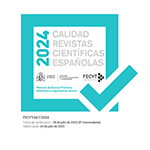The hegemonic Role of international non-governmental Organizations and Agencies as regards to the conceptualisation of Childhood
Abstract
Over the past decades, international non-governmental organisations and agencies have obtained an hegemonic role as far as the conceptualisation of childhood, and the description and analysis of the social issues that affect children and that are considered worthy of intervention. In spite of the diversity of the origins and affiliations of the actors that shaped international movements in defence of children, and of the diverse definitions of childhood they advocate, the conception of childhood which became hegemonic was based on the prototype of childhood historically belonging to European and North American bourgeoisie, which focused on the incomplete and dependent character of children and on their protection. This article provides a brief historical review of the international movement for the defence of children since its inception in the early twentieth century, focusing on the debates on the concepts of childhood. In particular, we aim attention at the way in which the development of the humanitarian intervention and international cooperation apparatus led to the legitimization of a “universal” conception of childhood, and of an approach to the planning and development of actions in favour of children based on their care and protection.Downloads
Article download
License
In order to support the global exchange of knowledge, the journal Sociedad e Infancias is allowing unrestricted access to its content as from its publication in this electronic edition, and as such it is an open-access journal. The originals published in this journal are the property of the Complutense University of Madrid and any reproduction thereof in full or in part must cite the source. All content is distributed under a Creative Commons Attribution 4.0 use and distribution licence (CC BY 4.0). This circumstance must be expressly stated in these terms where necessary. You can view the summary and the complete legal text of the licence.










